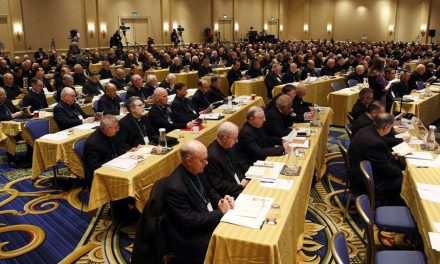As promised, I have posted Part 2 over at Political Theology’s There’s Power in the Blog.
The Circumstance of Unmet Need: Part II on Aquinas and the Moral Evaluation of a Budget
Offering examples of how circumstances, intention and the kind of thing it is to do are all important to Thomistic moral evaluation, philosopher Brian Davies, OP offers the following example:
Suppose I read the Summa theologiae with care and a desire to learn. That too might be regarded as a good thing to do and it seems that I do it with a good intention. But what if I am doing it while someone is dying of hunger beside me and begging me for food which I can easily provide? Then, Aquinas would hold my action is not good because of the circumstances in which it is performed. (238).
Attending to the questions necessary to determine appropriate circumstances and building off of Davies illustration, it is my contention that the current circumstances of unmet need is significant to the moral evaluation of a budget proposal or approach. I am not simply arguing that because of the difficult economic situation and high unemployment it is unjust to cut social programs like SNAP, TANF, and Housing Assistance because cuts will do harm to those currently receiving those benefits. That is true, but beyond that, it is unjust to consider cutting these programs because as they stand now there remains a significant unmet need among the poor in our society. Budget proposals (and the subsequent votes) rooted in an approach which prioritizes the deficit and debt in a significant reality of unmet need is morally wrong by virtue of circumstance.
Let’s begin with SNAP (food stamps) – there has been significant attention to the rise in the SNAP budget and what an “acceptable level” of said budget would be. SNAP is designed as an automatic stabilizer. As an automatic stabilizer, it is able to both effectively respond to changes of need when the economy contracts without new legislation. This is in addition to the effective economic impact SNAP provides stimulating the economy itself. From the perspective of Catholic social teaching, the size and budget of SNAP should only be a concern with respect to eligibility. The only morally acceptable way to shrink the SNAP budget is when less people are hungry in need of food stamps. Even with the increase in SNAP participation and its budget, there is still a significant percentage of unmet need.
After falling to a low of 54 percent in 2001 and 2002, SNAP’s participation rate among eligible people has increased in recent years, reaching 72 percent in fiscal year 2009.
Effective outreach has increased SNAP participation and lessened the stigma attached to food stamps. The goal however should be that all who are eligible for food stamps receive them. Unmet need is a morally significant circumstance – particularly in light of Matthew 25.
Please head over to Political Theology’s Blog to read the full post. With concrete data, I offer a complementary angle to previous arguments from Catholic social teaching – the unmet need of our social safety net is crucial to the moral evaluation of a budget or budgetary approach.




I take it that you have in mind domestic needs, the needs of our fellow citizens. But why, in Catholic social teaching, should the needs of those beyond our national borders be (far) less significant, either in our individual actions or in our federal budget priorities? Compared to the needy here, those abroad often worse-off. I am unfamiliar with Catholic social teaching.
Craig,
Here is a good primer and link for more information on Catholic social teaching. http://www.usccb.org/about/domestic-social-development/resources/upload/poverty-common-good-CST.pdf
Yes, in this series I have been focused on Domestic Social Protection programs. Personally, I would not limit questions in this area to fellow citizens (although many others would) but the question of responsibilities for those within our borders. That is not to say we do not have significant obligations with respect to global poverty and global concerns – we do – and Catholic social teaching makes that quite clear.
However, it does not conflate everything down. It is not the approach of Catholic social teaching to boil it down to the needy here are better off than the needy abroad. We have far reaching sets of responsibilities (including responsibilities as Christians to all human persons regardless of where they reside). But the analysis I have been making is on the domestic social protections and debates about the federal budget.
Meghan – I think your response to Craig’s question misses the point. Your entire argument here is based on the “circumstances of unmet needs” but surely we must all agree that every man is our brother so what justifies you in ignoring the needs of most of mankind? If a budget can be judged immoral because it does not satisfy otherwise unmet needs then let’s be clear that there can be no such thing as a moral budget. In fact, even if we did limit the discussion to the unmet needs of Americans we would face the same conclusion: there will always be unmet needs and – by the sole criterion you presented – every budget will be unjust.
If you respond that it is silly to demand the impossible but we should at least do the best we can with the resources we have then you need more criteria because now it comes down to making practical choices. For example, you condemn the Ryan budget for cutting (among other things) the SNAP program and on that basis find his plan immoral. I’m guessing here because I haven’t actually read through his plan but I suspect that he does not cut the budget for that program but only slows its growth. That is, instead of having its budget increase by 7% next year it would increase by only 4%. You cannot seriously consider this to be an immoral change simply by noting that there will be unmet needs if the reduction is made inasmuch as there would be unmet needs even if the change was an increase to 10%.
Your criterion is inadequate because it always comes up with the same answer: there are always unmet needs. We should not be entirely surprised by this as we have it from a reliable source that the poor would always be with us.